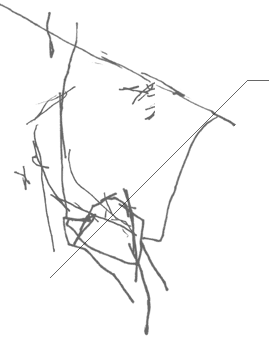Wednesday, February 25, 2026 |
||

|

by Michael Goldberg
Monday, April 15, 2002
Remembering Big Brother and the Holding Company
A recent documentary reminds us that Janis' bandmates mattered too.
|
|||
|
On a sunny day in Golden Gate Park in 1968, I stood in a sea of San Francisco freaks, taking in the raw, bluesy rock 'n' roll that Big Brother and the Holding Company were dishing out during one of the now-infamous free concerts of the mid-to-late '60s. I was 15 years old, and what I saw and heard ripped my head right off.
James Gurley, the tall, lanky guitarist whose feedback-drenched sound, in its own way, took rock guitar where it had never gone before, was testing out some new effects device provided him by Fender that day, and he never sounded better. His bandmates — guitarist Sam Andrews, bassist Peter Albin and drummer David Getz — were jamming in the way that only they could. And then there was Janis Joplin, singing, screaming, hollering, stomping about the stage, grooving, tearing into songs. If Tina Turner made love when she sang, Janis, to put it indelicately, fucked. I dug Big Brother even before I ever heard a note of their amazing music. As teenagers, my good friend Toby Byron and I collected the psychedelic posters advertising dance-concerts at the Avalon Ballroom, and one of the bands frequently advertised on those posters was Big Brother. The name, I thought, was totally cool (as were the names of such San Francisco bands as The Charlatans, the Jefferson Airplane, the Grateful Dead, the Quicksilver Messenger Service and the Mystery Trend). We had also seen photos of most of the Bay Area bands before we heard them — sometimes band members were pictured on the dance-concert posters, sometimes in local magazines. Many of them looked like Wild West throwbacks with long hair. In the mid-'60s, if you were 13 and had grown up in a middle-class family in the suburbs, the impact of the posters and the photos was really something. The British and American bands that came before them (The Beatles, Rolling Stones, Byrds, Lovin' Spoonful, Beach Boys) seemed so tame in comparison. Then we heard the music, and we were goners. As I recall Toby bought the very first Big Brother single, with "Down on Me" and "Call on Me." The sound was crude — these days you'd call it lo-fi — but the songs were great, and the music simply transcendent. I had started listening again to the '60s recordings of Big Brother and the Holding Company earlier this year, when Toby — now the acclaimed producer of a series of jazz documentaries that preceded Ken Burns' higher-profile series by a decade — sent me a DVD documentary on Big Brother, "Nine Hundred Nights." For those who wonder what exactly all the fuss was about around the San Francisco music scene of the mid-to-late '60s, "Nine Hundred Nights" is an essential document. While the focus is, of course, on telling the story of one of the great misunderstood rock 'n' roll bands, in the process we get a glimpse of a time that now seems so very far removed from this one. There are scenes of kids in Golden Gate Park at free concerts (just like the ones Toby and I attended) — shirts off, hair long, paint on their faces, dancing, digging the expansive, expressive, trippy sounds. The footage is powerful, touching, and at times amusing. I love the part where the surviving members of Big Brother each recall what Janis was wearing the first time they rehearsed with her. Each describes a completely different outfit. There is rare footage here of the group performing "Piece of My Heart" and "Comin' Home" at the Generation Club, and wonderful footage of the band rehearsing "Down on Me" and recording "Summertime" for Cheap Thrills. What is most satisfying, though, about "Nine Hundred Nights" is that it not only makes the case for Big Brother as an incredible rock 'n' roll band, but proves it. Historians take note! Following their performance at the Monterey Pop fest, the late Albert Grossman, then Bob Dylan's manager, took on Big Brother. According to interviews with members of the band, Grossman thought Janis was better than her band, and he encouraged her to leave them. Worse, the rock press at the time took up the refrain, dissing the band time and time again. When the "Monterey Pop" film was released, the band members were shocked to find that they'd been edited out; the footage was almost entirely of Janis alone. I can tell you that at the time, the word that circulated among rock fans in the U.S. was that Janis was the star, and that her band didn't cut it. Those of us who had seen them — at the Avalon Ballroom, at Winterland, at the Magic Mountain Fantasy Fair and Music Festival on Mt. Tamalpais, and at those free concerts in the Park — knew better. James Gurley was, in his prime, one of the great rock guitarists. His raw, primitive sound was as important to the group as Janis' singing. But it wasn't just Gurley. The other guys were key to the group sound, and the group sound was a kind of undisciplined precursor to punk rock. It was wonderful stuff, and Janis on her own never equaled the music she made with Big Brother. In "Nine Hundred Nights," Patti Smith Group guitarist and rock historian/critic Lenny Kaye is interviewed about Big Brother. He defends them, and says it's the recordings Janis made with them — found on the albums Big Brother and the Holding Company, Cheap Thrills, part of the three-CD set Janis, and on the first two sides of Joplin in Concert — that he turns to, not the two albums she recorded after leaving the band behind. |
||||